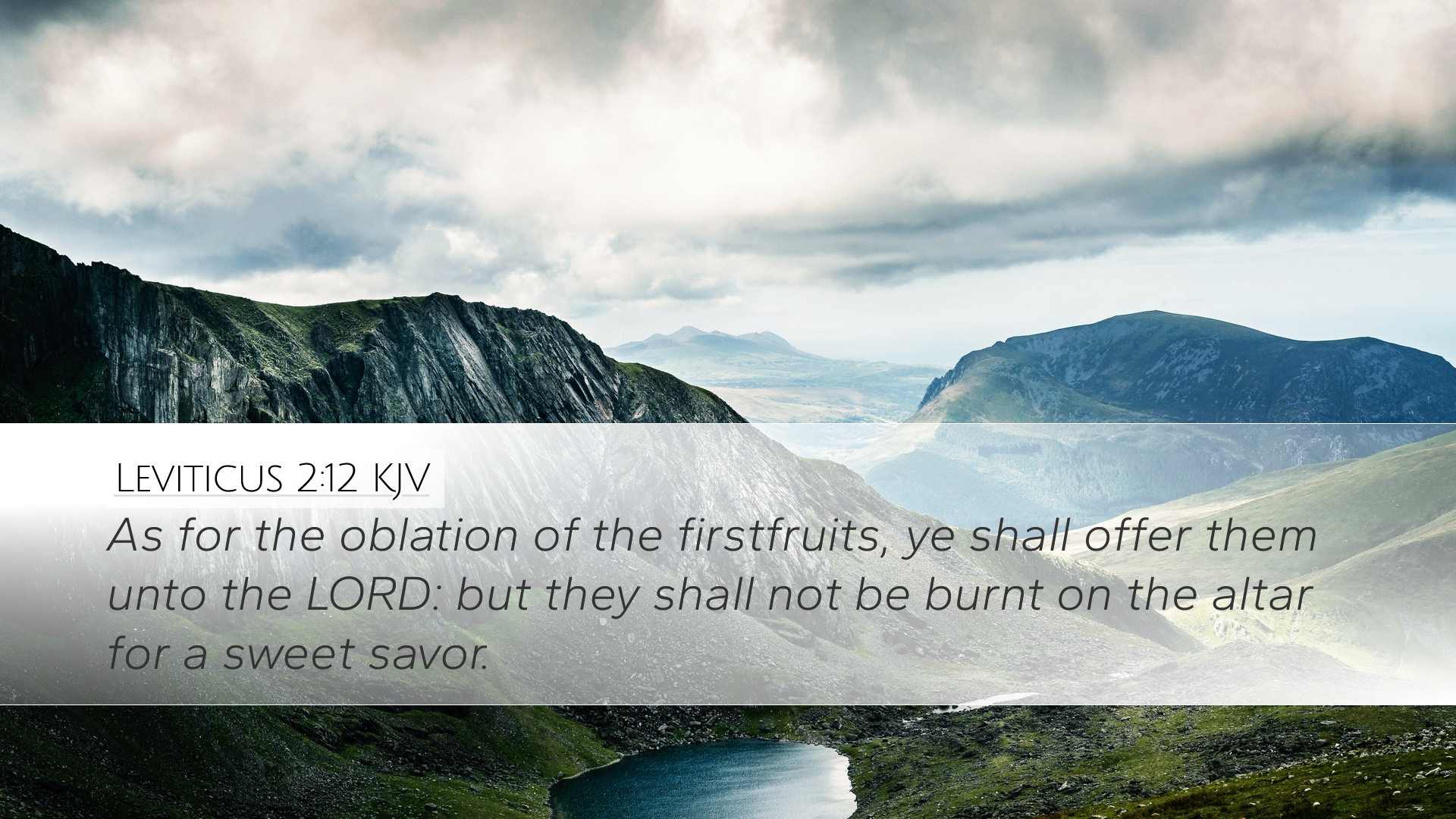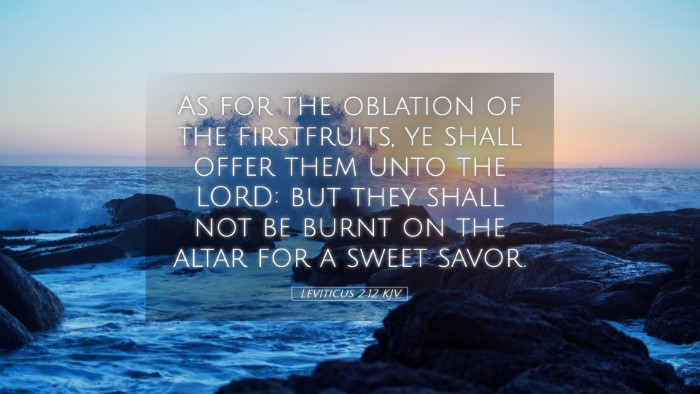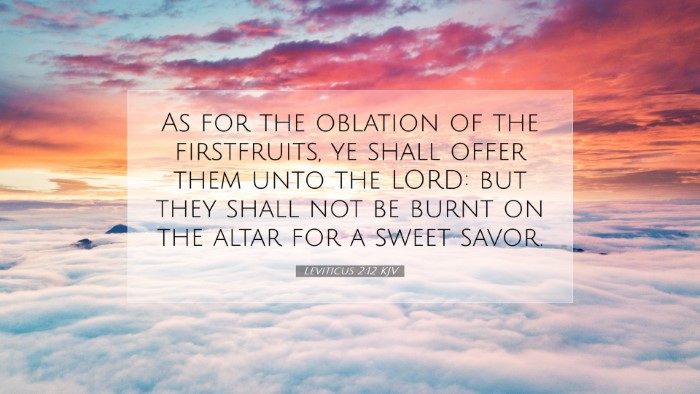Commentary on Leviticus 2:12
Text of Leviticus 2:12 (KJV): "As for the oblation of the firstfruits, ye shall offer them unto the LORD: but they shall not be burnt on the altar for a sweet savour."
Introduction
Leviticus 2:12 is part of the larger section of offerings known as the grain offerings. This verse specifically deals with the offering of firstfruits, an important tradition in Israel which symbolically acknowledged God's provision and sovereignty over the harvest and the sustenance of His people.
Understanding the Context
The sacrificial system and offerings outlined in Leviticus served several purposes: they were acts of worship, means of atonement, and methods of expressing gratitude and dependence on God.
- Historical Significance: The firstfruits represented the initial yield of the harvest, signifying hope and expectation for the rest of the harvest season. Offering the firstfruits to God demonstrated faith in His continued provision.
- Theological Implications: This verse reflects the principle that everything originates from God, and giving the first portion back emphasizes our stewardship of His blessings.
Insights from Matthew Henry
Matthew Henry elaborates on the act of offering firstfruits as a demonstration of gratitude. He asserts that:
- It is a principle of gratitude to acknowledge God first in our blessings.
- Henry highlights that the grain offerings were to be free of leaven, which symbolizes purity and holiness, representing the character of what is presented to God.
Insights from Albert Barnes
Albert Barnes provides additional clarity related to the nature of the offerings:
- He notes that the firstfruits should not be burnt on the altar as a whole offering but must be recognized by the priest, reinforcing their sacred status without being fully consumed, unlike other offerings.
- Barnes emphasizes that these offerings should be accompanied by thanksgiving as they were gifts of acknowledgment and honor to God for His provisions.
Insights from Adam Clarke
Adam Clarke contributes a practical perspective on the offerings, emphasizing their importance in the daily life of Israel:
- He interprets the rendering of firstfruits as a duty of service to God, integrating expressions of faith into their agricultural lifestyle.
- Clarke highlights that the stipulation against burning these offerings for a sweet savor suggests a distinction between various forms of offerings and their meanings, implying that the firstfruits held a unique role.
The Importance of Firstfruits Today
The concept of offering firstfruits transcends the Old Testament ceremonial law and finds its applications for contemporary believers:
- Recognition of God’s Sovereignty: Giving of our "first"—whether time, talent, or treasure—acknowledges that all blessings come from God and submits them to His will.
- Covenantal Relationship: Just as Israel's act of offering was a sign of their covenant, our offerings signify our commitment to God's work and His mission on Earth.
Conclusion
Leviticus 2:12 emphasizes the importance of prioritizing and acknowledging God in all aspects of life. The insights provided by Matthew Henry, Albert Barnes, and Adam Clarke shed light on our understanding of gratitude, holiness, and stewardship as integral to our worship and relationship with God.


